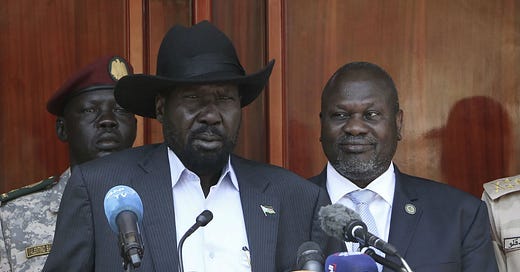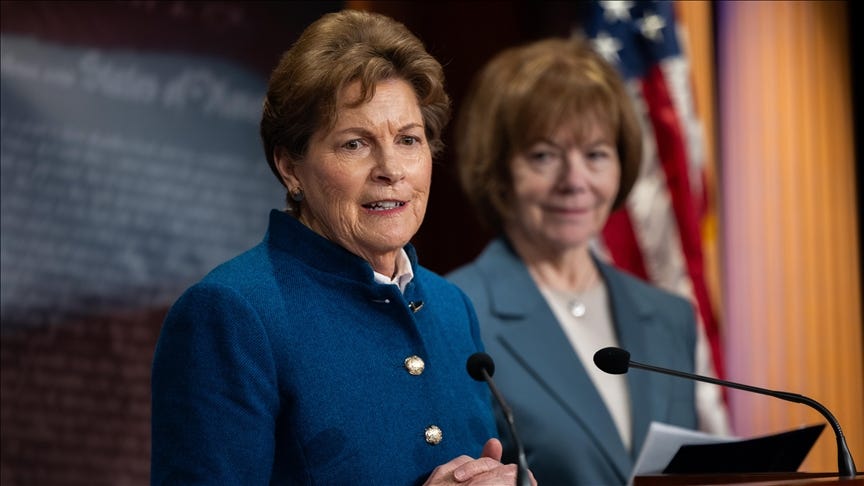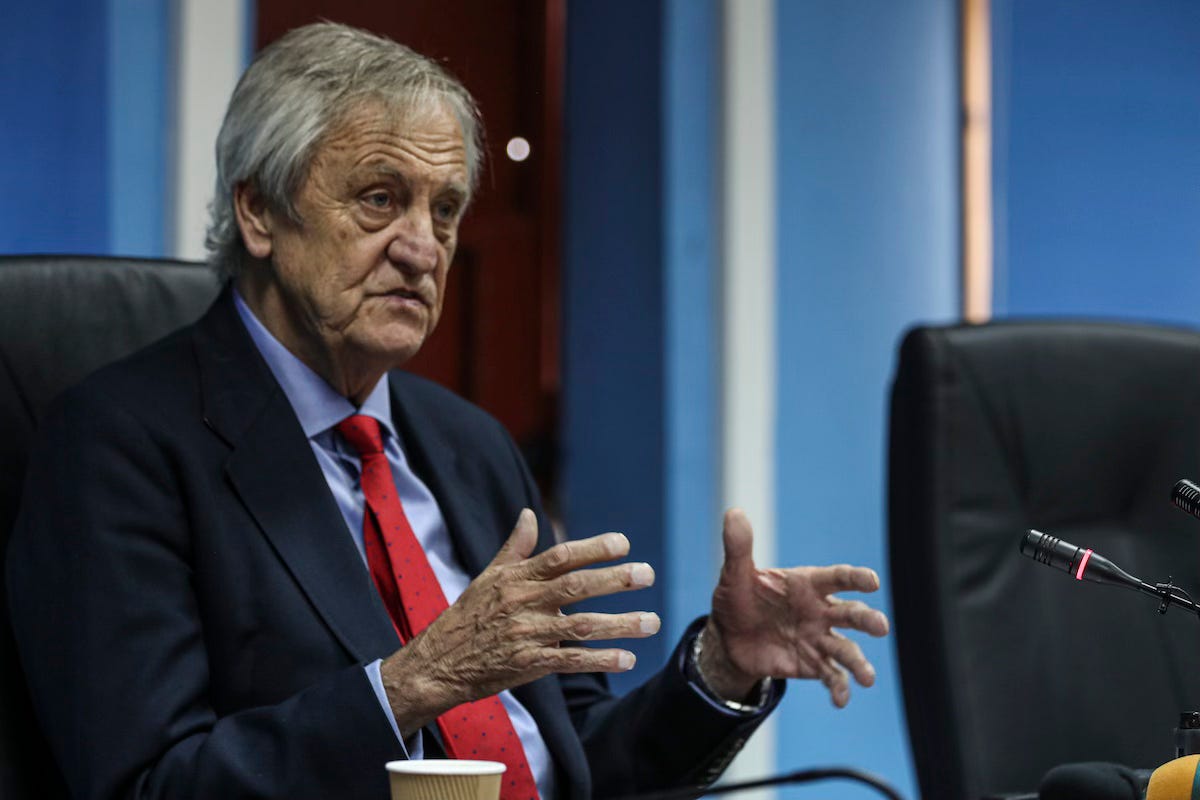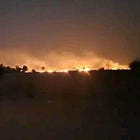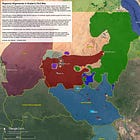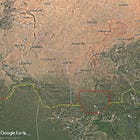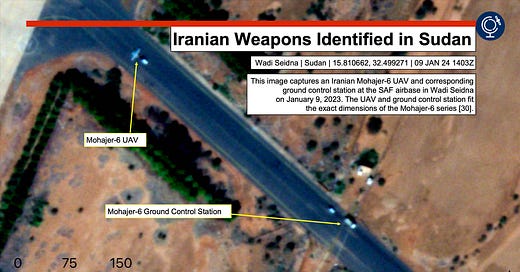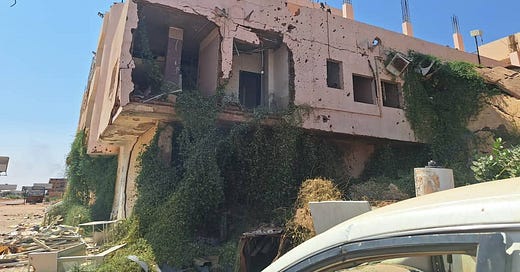
South Sudan’s Kiir arrests deputy Machar in another blow to peace deal
More embassies evacuate from Juba after clashes near the city
In Brief:
The U.S. State Department said it was concerned by Macahr’s arrest and urged President Kiir to change course. UN envoy Nicholas Haysom implied the move was a “unilateral amendment” to South Sudan’s 2018 peace agreement.
Clashes took place near Juba at Rejaf, Wunaliet, and Rambur, between the South Sudan People’s Defence Forces (SSPDF) and the opposition SPLM-IO.
SPLM-IO troops attacked SSPDF troops in Tonga on Tuesday, forcing them to withdraw. Clashes were also reported in Unity State.
Germany and Norway closed their embassies in South Sudan; the UK reduced embassy staffing (though the ambassador remained); and the US further reduced personnel, having already evacuated “non-essential” embassy personnel.
The U.S. and Canada advised citizens to consider leaving the country by commercial means while they are still available.
Leaders of the largest church bodies in South Sudan met with President Salva Kiir and Second Vice President Benjamin Bol Mel, who is widely considered Kiir’s preferred successor, calling for dialogue and a cessation of hostilities.
Following our report last week on the bombing of Nasir, additional fire bombs were dropped on the town, and on other communities in Upper Nile.
VP arrested and his bodyguards disarmed
South Sudan’s President Salva Kiir Mayardit last night arrested his deputy, First Vice President Riek Machar, in a significant setback for the peace deal signed in 2018. The agreement, which ended five years of civil war, resulted in a power-sharing arrangement between Kiir and Machar, who lead different factions of the SPLM party.
Machar’s arrest came after he issued a public letter calling on the UN, African Union, and IGAD to intervene over the deployment of Ugandan troops in South Sudan, which he called “a grave violation” of the 2018 peace deal. Machar also accused the Ugandan military of taking part in airstrikes against civilians Upper Nile. During the previous civil war, Uganda’s army fought against Machar’s forces.
The circumstances surrounding Machar’s detention remain unclear, but sources within his opposition group, the Sudan People’s Liberation Movement in Opposition (SPLM-IO), revealed that security forces, led by the defense minister, army chief, and the head of the National Security Service, stormed Machar’s residence at 8:00 p.m.
The security personnel, reportedly armed with heavy weapons, forcibly disarmed Machar's security details, including officers from the Sudanese General Intelligence Service (GIS) who had been assigned to protect the opposition leader upon his return to Juba in 2018, and removed them in military vehicles.
Reath Muoch Tang, head of SPLM-IO’s National Committee on Foreign Relations, condemned the arrest as “unconstitutional” and a clear violation of the peace agreement. In a statement, he described the detention as a violation of legal procedures, stating that no process had been followed to lift Machar’s immunity, which is required for any legal action against him under the peace deal.
“We strongly condemn the unconstitutional actions taken today by the Minister of Defense and the Chief of National Security, who, alongside more than twenty heavily armed vehicles, forcefully entered the residence of the First Vice President. His bodyguards were disarmed, and an arrest warrant was delivered to him under unclear charges. Attempts are currently being made to relocate him.”
“We hold President Salva Kiir responsible for this reckless abrogation of the peace agreement and call upon the regional and international community to urgently intervene to prevent further escalation.” — SPLM-IO
Machar, who has been prevented from speaking to the press since his return to South Sudan in February 2020, has not personally commented on the situation. However, his press secretary, Puok Both Baluang, confirmed to BBC journalist James Copnall that Machar had been arrested and the group is having difficulty trying to locate him.
The vice president was a pivotal figure in the last South Sudanese civil war (2013-2018), which took place after South Sudan’s independence in 2011, and in the Second Sudanese Civil War (1985-2005) during the independence struggle. During these wars, Machar led armed groups known as SPLM-IO and SPLM-Nasir, respectively. Ethnically, the vice president is Nuer, South Sudan’s second largest ethnic group, whereas the president is Dinka, the largest tribe.
What can be done to prevent war in South Sudan? Join the discussion.
Calls for deescalation
Machar’s arrest has sparked international concern. The U.S. State Department’s Bureau of African Affairs called on Kiir to release him. It said on social media,
“We are concerned by reports South Sudan's First Vice President Machar is under house arrest. We urge President Kiir to reverse this action and prevent further escalation of the situation. It is time for South Sudan's leaders to demonstrate sincerity of stated commitments to peace.”
Similarly, U.S. Senator Jeanne Shaheen, a member of the Senate Foreign Relations Committee, urged South Sudan’s leaders to prioritize dialogue. In a statement posted on X (formerly Twitter), Shaheen said, “The South Sudanese people have been through enough. I call on South Sudanese leaders to choose peaceful dialogue, not conflict. I reiterate the UN in calling for an immediate and indefinite ceasefire.”
Similarly, the United Nations Mission in South Sudan (UNMISS) swiftly issued a statement warning of the potential for renewed conflict. Nicholas Haysom, the Special Representative of the UN Secretary-General and Head of UNMISS, cautioned that the country stood at a crossroads.
“Tonight, the country’s leaders stand on the brink of relapsing into widespread conflict or taking the country forward towards peace, recovery and democracy in the spirit of the consensus that was reached in 2018 when they signed and committed to implementing a Revitalized Peace Agreement.”
“Unilateral amendments by Parties to that agreement that jeopardize the hard-won gains of the past seven years risk returning the country back into a state of war. This will not only devastate South Sudan but also affect the entire region,” Haysom added.
Haysom is a South African lawyer and former legal advisor to Nelson Mandela, who has served in mediation and UN leadership roles for twenty years.
Days ago, Haysom told the UN Security Council in a video briefing, “We assess that South Sudan is on the edge of a relapse into civil war.”
“To try to prevent this outcome, UNMISS is engaging in intense shuttle diplomacy alongside international and regional peace partners. The efforts of the international community to broker a peaceful solution can only succeed if the parties themselves are willing to engage and put the interests of their people ahead of their own.”
Fragile peace and escalating tensions
Kiir and Machar signed the revitalized peace agreement in September 2018 after a predecessor deal collapsed in 2016, plunging the country back into violence. The 2018 agreement was mediated under the auspices of the regional Intergovernmental Authority on Development (IGAD) bloc and was intended to address the root causes of the conflict between Kiir’s and Machar’s factions.
However, the implementation of the agreement has faced significant delays, particularly in completing pre-transitional arrangements. Machar’s return to Juba in February 2020 was intended to serve as a confidence-building measure, allowing both parties to work out pending tasks, but he has long claimed that his movement has been restricted in Juba, making it difficult for him to engage with his forces and implement peace initiatives.
Elections, which were meant to conclude the transitional period, have been postponed multiple times, as parties to the agreement, including Kiir’s SPLM-IG party, Machar’s SPLM-IO, and the South Sudan Opposition Alliance (SSOA), have failed to implement key reforms required for their conduct.
Both Kiir and Machar have accused each other of hindering the peace process. Machar has accused Kiir of undermining the peace agreement by seizing positions allocated to his party, while Kiir has criticized Machar’s group for the large number of officers who, according to him, do not have command over soldiers, complicating the process of forming a unified national army.
The latest escalation began March 4th in Nasir County, Upper Nile State when an armed Nuer ethnic militia, known as the White Army, resisted the deployment of South Sudan People’s Defense Forces (SSPDF) in the area. Fearing disarmament, the group called for the deployment of peace forces as outlined in the peace agreement. However, the government rejected this, as the peace forces had been deployed without weapons.
In the aftermath of the violence in Nasir, senior members of Machar’s party were arrested, including Gabriel Duop Lam, the SPLA-IO military chief, who also served as deputy chief of the South Sudan People’s Defense Forces under the revitalized peace agreement. Other senior figures, including Petroleum Minister Puot Kang Chuol, were either arrested or fled the capital in fear of detention.
Juba citizens fear clashes in city
Fighting broke out near SPLA-IO cantonments and training centers near Juba on Tuesday and Wednesday, raising fears of further escalation between the peace partners. Residents of the capital, who have previously witnessed large-scale violence, including ethnic targeting in the 2013 and 2016 conflicts, expressed alarm over the rising tensions.
Taban Emmanuel, a resident of Juba, was quoted by Radio Tamazuj on Wednesday, stating that the widespread alarming information on social media, coupled with the heavy military presence in the capital, suggests that the country is on the verge of descending into war once again.
“As a citizen of Juba, I am terrified. With the current situation we are witnessing, we fear that anything could happen at any time. We do not know exactly when, but the warning signs are clear.”
The detention of Machar, a key figure in the peace process, represents a dramatic escalation in South Sudan’s already fragile political landscape. With both parties to the peace agreement facing increasing challenges, there are growing concerns that the country may return to the instability and violence that has defined much of its recent history.
Meanwhile, South Sudan’s northern neighbor, which has been crucial for the country’s economic ties, particularly in the transportation of South Sudan’s oil, is also embroiled in its own conflict. Relations between the two nations have been strained, with both having supported each other's adversaries in the past. This dynamic seems to hold true once again, as evidenced by last week's clashes between the Rapid Support Forces (RSF) and the SPLA-IO in Upper Nile.

